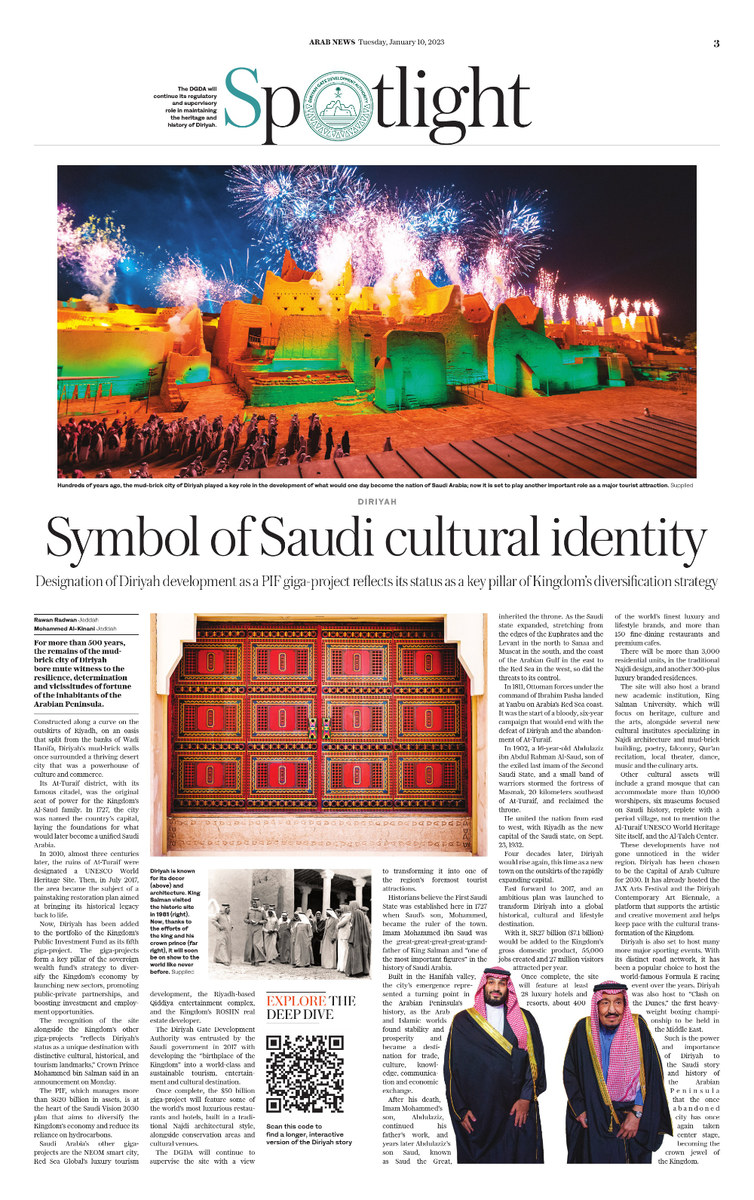JEDDAH: For more than 500 years, the remains of the mud-brick city of Diriyah bore mute witness to the resilience, determination and the vicissitudes of fortune of the inhabitants of the Arabian Peninsula.
Constructed along a curve on the outskirts of Riyadh, on an oasis that split from the banks of Wadi Hanifa, Diriyah’s mud-brick walls once enclosed a thriving desert city that was a powerhouse of culture and commerce.
Its At-Turaif district, with its famous citadel, was the original seat of power for the Kingdom’s Al-Saud family. In 1727, the city was named the country’s capital, laying the foundations for what would later become a unified Saudi Arabia.
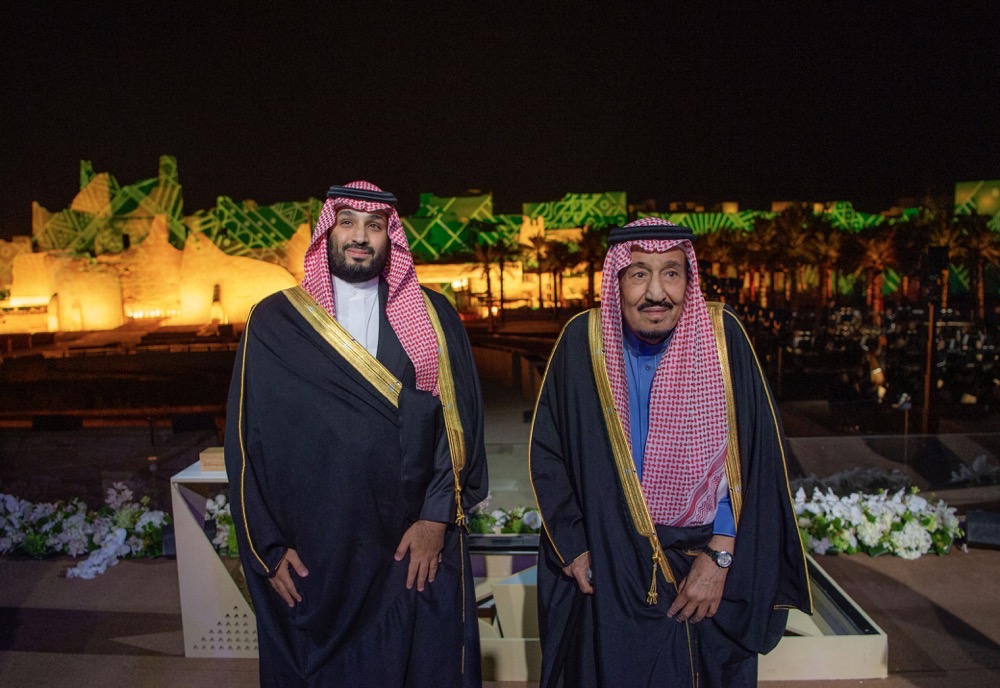
Thanks to the efforts of the king and his crown prince, Diriyah will soon be on show to the world like never before. (SPA)
In 2010, almost three centuries later, the ruins of At-Turaif were designated a UNESCO World Heritage site. Then, in July 2017, the area became the subject of a painstaking restoration plan aimed at bringing its historical legacy back to life.
Now, Diriyah has been added to the portfolio of the Kingdom’s Public Investment Fund (PIF) as its fifth giga-project.
The five giga-projects form a key pillar of the sovereign wealth fund’s strategy to diversify the Kingdom’s economy by launching new sectors, promoting public-private partnerships, and boosting investment and employment opportunities.
The recognition of the site alongside the Kingdom’s other giga-projects “reflects Diriyah’s status as a unique destination with distinctive cultural, historical and tourism landmarks,” Crown Prince Mohammed bin Salman, the prime minister of Saudi Arabia and chairman of the PIF, said in an announcement on Monday.
The PIF, which manages more than $620 billion in assets, is at the heart of the Saudi Vision 2030 plan that aims to diversify the Kingdom’s economy and reduce its reliance on hydrocarbons.
Besides Diriyah, Saudi Arabia’s roster of giga-projects includes NEOM smart city, Red Sea Global’s luxury tourism development, Riyadh-based Qiddiya entertainment complex and real-estate developer ROSHN.
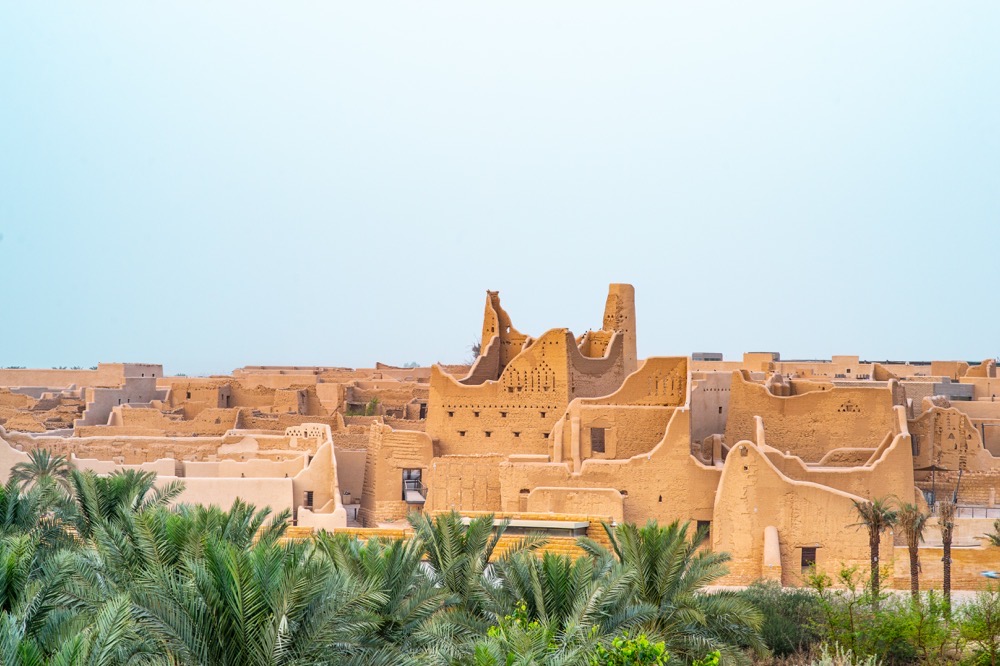
At the center of Diriyah’s At-Turaif district, a maze of stone and adobe mud houses, courtyards and towers, are located high citadel towers of the majestic Salwa Palace. (Supplied)
The Diriyah Gate Development Authority (DGDA) was entrusted by the Saudi government in 2017 with redeveloping the “birthplace of the Kingdom” into a world-class and sustainable tourism, entertainment and cultural destination.
Once complete, the $50 billion giga-project will feature some of the world’s most luxurious restaurants and hotels built in traditional Najdi architectural style, alongside conservation areas and cultural venues.
The DGDA will continue to supervise the site with a view to transforming it into one of the region’s foremost tourist attractions.
At the center of Diriyah’s At-Turaif district, a maze of stone and adobe mud houses, courtyards and towers, are located high citadel towers of the majestic Salwa Palace. It was here where the first chapters in the story of Saudi Arabia were written.
Extending over an area of at least 10,000 square meters, the palace at Salwa, which means solace or comfort in Arabic, is the largest single structure in Diriyah, consisting of seven architectural units built in successive stages.
The first appeared in 1446 when Manaa’ Al-Muraide, leader of the Marada clan of the Al-Duru tribe of Bani Hanifah, and “the father of the Saudi royal family,” laid the building blocks for what would become the greatest state in the history of the Arabian Peninsula.
Built in distinctive Najdi architectural style from mud bricks, straw, and logs, the walls are lined with decorative triangular windows designed to recirculate air and bring natural light into the rooms.
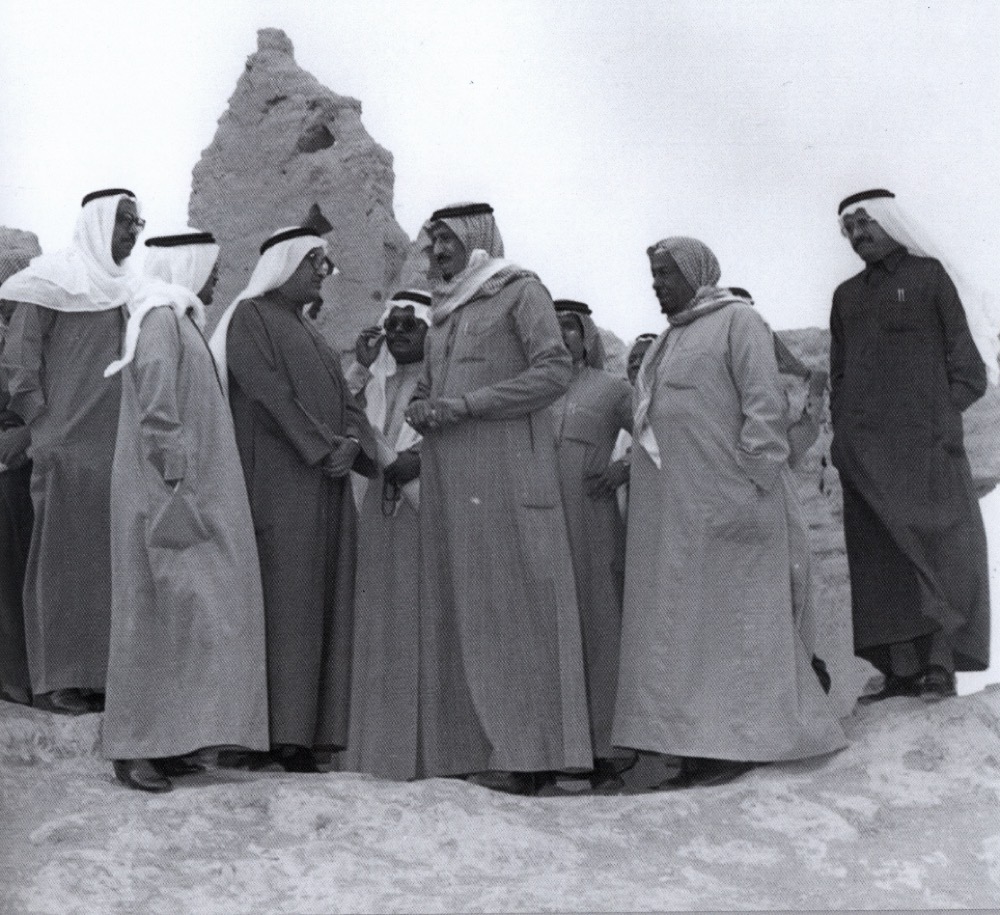
King Salman visited the historic site in 1981. (Supplied)
This architectural style evolved over several centuries in response to the harsh conditions, making use of the few readily available natural materials, including sun-baked adobe bricks, limestone quarried from the slopes of the wadi and timber from the hardy tamarisk tree.
Historians believe the First Saudi State was established here in 1727 when Saud’s son, Mohammed, became the ruler of the town. Imam Mohammed ibn Saud was the great-great-great-great-grandfather of King Salman and “one of the most important figures” in the history of Saudi Arabia.
Built in the Hanifah valley, the city’s emergence represented a turning point in the Arabian Peninsula’s history, as the Arab and Islamic worlds found stability and prosperity and became a destination for trade, culture, knowledge, communication and economic exchange.
After his death, Imam Mohammed’s son, Abdulaziz, continued his father’s work, and years later, his son Saud, known as Saud the Great, inherited the throne.

Diriyah has been added to the portfolio of the Kingdom’s Public Investment Fund (PIF) as its fifth giga-project. (Royal Commission for Riyadh City)
As the Saudi state expanded, stretching from the edges of the Euphrates and the Levant in the north to Sanaa and Muscat in the south and the coast of the Arabian Gulf in the east to the Red Sea in the west, so did the threats to its control.
In 1811, Ottoman forces under the command of Ibrahim Pasha landed at Yanbu on Arabia’s Red Sea coast. It was the start of a bloody, six-year campaign that would end with the defeat of Diriyah and the abandonment of At-Turaif.
In March of 1818, the city walls were battered by shell fire, the scars of which remain visible today. Outnumbered six to one, 5,000 soldiers held the fort against the forces of Ibrahim Pasha.
For six months they stood strong to defend the fort. However, for every one of the 1,200 defenders who died, 10 of Pasha’s men were killed in battle. Leading the Saudi soldiers was Imam Abdullah bin Saud.
When the siege was finally over, the Ottomans withdrew from Najd, but not before laying waste to Diriyah, destroying buildings and fortifications. They also cut down every single date palm tree, undoing years of patient cultivation and condemning people across a wide area to starvation.
Although Diriyah and At-Turaif had been left in ruins, torn by unrest, assassinations, civil war, and later seized by the Ibn Rasheed clan in 1891, they remained in the hearts of the surviving members of the Saud family.
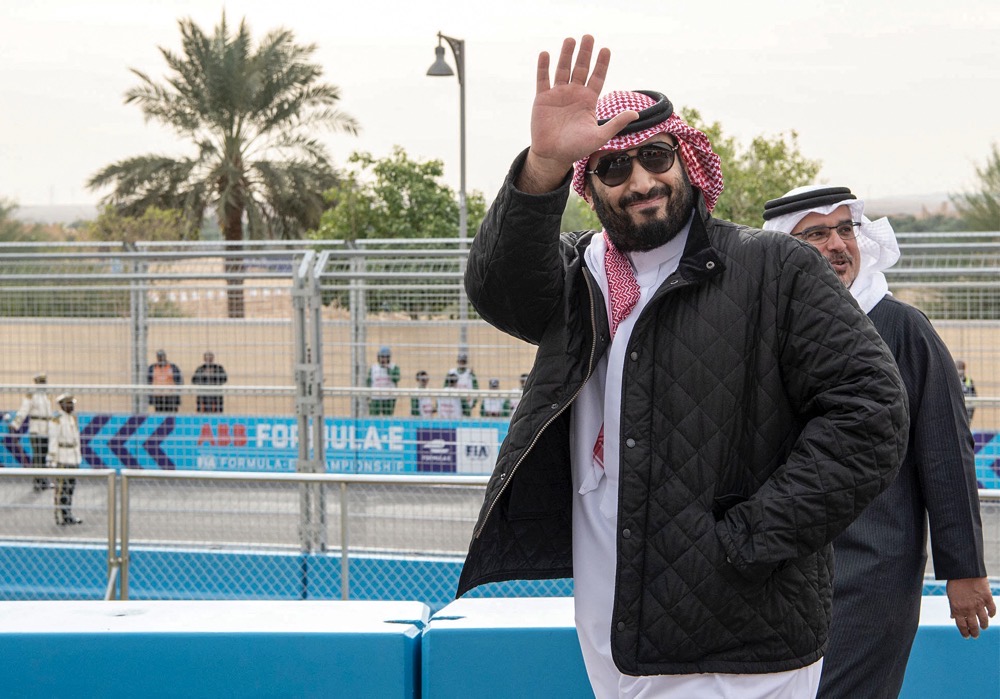
The recognition of the site alongside the Kingdom’s other giga-projects “reflects Diriyah’s status as a unique destination with distinctive cultural, historical and tourism landmarks,” said the crown prince. (SPA)
In 1902, a 16-year-old Abdulaziz ibn Abdul Rahman Al-Saud, son of the exiled last imam of the Second Saudi State, and a small band of warriors, stormed the fortress of Masmak, 20 km southeast of At-Turaif, and reclaimed the throne.
He united the nation from east to west, with Riyadh as the new capital of the Saudi state, on Sept. 23, 1932. Four decades later, Diriyah would rise again, this time as a new town on the outskirts of the rapidly expanding capital.
Fast forward to 2017, and an ambitious plan was launched to transform Diriyah into a global historical, cultural and lifestyle destination.
With it, SR27 billion ($7.1 billion) would be added to the Kingdom’s gross domestic product, 55,000 jobs created and 27 million visitors attracted per year.
Once complete, the site will feature at least 28 luxury hotels and resorts, about 400 of the world’s finest luxury and lifestyle brands, and more than 150 fine-dining restaurants and premium cafes.
There will be more than 3,000 residential units in the traditional Najdi design and another 300-plus luxury branded residences.
The site will also host a brand new academic institution, King Salman University, which will focus on heritage, culture and the arts, alongside several new cultural institutes specializing in Najdi architecture and mud-brick building, poetry, falconry, Qur’an recitation, local theater, dance, music and the culinary arts.
Other cultural assets will include a grand mosque that can accommodate more than 10,000 worshipers, six museums focused on Saudi history, replete with a period village, not to mention the Al-Turaif UNESCO World Heritage site itself, and the Al-Taleh Center, the focus of whose work is the region’s farming heritage.
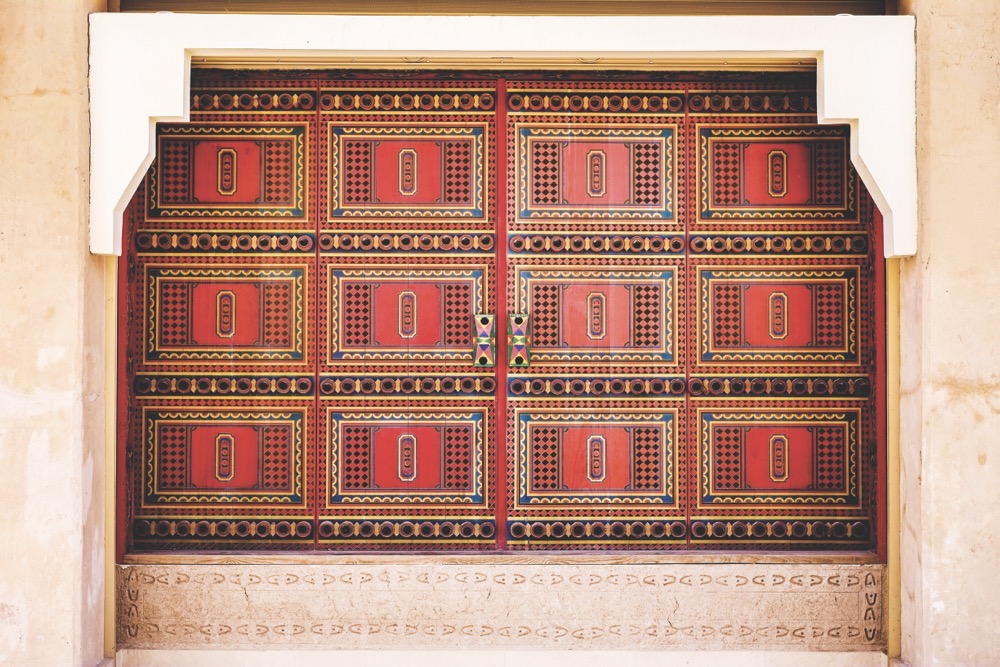
Diriyah is known for its decor and architecture. (Supplied)
These developments have not gone unnoticed in the wider region. Diriyah has been chosen to be the Capital of Arab Culture for 2030. It has already hosted the JAX Arts Festival and the Diriyah Contemporary Art Biennale, a platform that supports the artistic and creative movement and helps keep pace with the cultural transformation of the Kingdom.
Diriyah is also set to host many more major sporting events. With its distinct road network, it has been a popular choice to host the world-famous Formula E racing event over the years. Diriyah was also host to “Clash on the Dunes,” the first heavyweight boxing championship to be held in the Middle East.
Such is the power and importance of Diriyah to the Saudi story and history of the Arabian Peninsula that the once abandoned city has once again taken center stage, becoming the crown jewel of the Kingdom.
